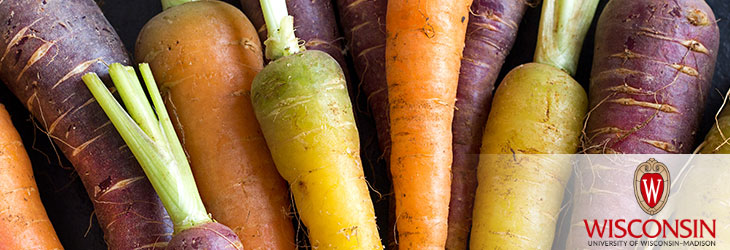Animals, Agriculture & Food

Improved Extraction and Preservation of Pathogen-Free
Maize Germplasm
WARF: P190212US02
Inventors: Michael Petersen, Brian Martinell, Edward Williams, Frank McFarland, Nathaniel Schleif, Shawn Kaeppler, Heidi Kaeppler
The Wisconsin Alumni Research Foundation (WARF) is seeking commercial partners interested in developing a method for the sterile extraction, drying and storage of immature maize embryos suitable for genetic transformation.
Overview
Genetic transformation of maize and other crops is critically important to agronomy research as well as advancing desirable traits such as improved yield, disease resistance and drought tolerance. Most genetic transformation/editing methods rely on older “transformation competent” germplasm, and are prone to tissue culture-induced mutations that introduce unknown variables into the plant and complicate selection.
Other limitations exist as well. Using current methods, maize embryos must be extracted from seed tissue immediately prior to transformation due to the inability to store such tissues, and the risk of transferring pathogens (e.g., corn smut) from the parent plant to the transformed plant is high.
There is a need to develop storable germplasm tissues suitable for all forms of genetic transformation. This would enable more rapid transformation of heterologous DNA of interest as well as increase overall efficiency.
Other limitations exist as well. Using current methods, maize embryos must be extracted from seed tissue immediately prior to transformation due to the inability to store such tissues, and the risk of transferring pathogens (e.g., corn smut) from the parent plant to the transformed plant is high.
There is a need to develop storable germplasm tissues suitable for all forms of genetic transformation. This would enable more rapid transformation of heterologous DNA of interest as well as increase overall efficiency.
The Invention
UW–Madison researchers have developed an improved method for the sterile extraction, drying and storage of immature maize embryos. Using the new method, plant embryos can be preserved in freezers rather than used immediately, rehydrated and subsequently transformed at greatly reduced risk of passing on fungal, bacterial and viral pathogens.
The researchers extensively studied various handling conditions to desiccate the maize embryos while maintaining viability. They discovered that key variables include drying rate, temperature, relative humidity and internal moisture content. Following rehydration, at least 70 percent of the embryos germinated.
The researchers extensively studied various handling conditions to desiccate the maize embryos while maintaining viability. They discovered that key variables include drying rate, temperature, relative humidity and internal moisture content. Following rehydration, at least 70 percent of the embryos germinated.
Applications
- Generating pathogen-free maize embryos suitable for genetic transformation
Key Benefits
- Extended storage
- Greatly reduced risk of pathogen transfer
- Embryos can be sorted and manipulated mechanically
- Improved transformation efficiency
Additional Information
For More Information About the Inventors
Tech Fields
For current licensing status, please contact Emily Bauer at [javascript protected email address] or 608-960-9842